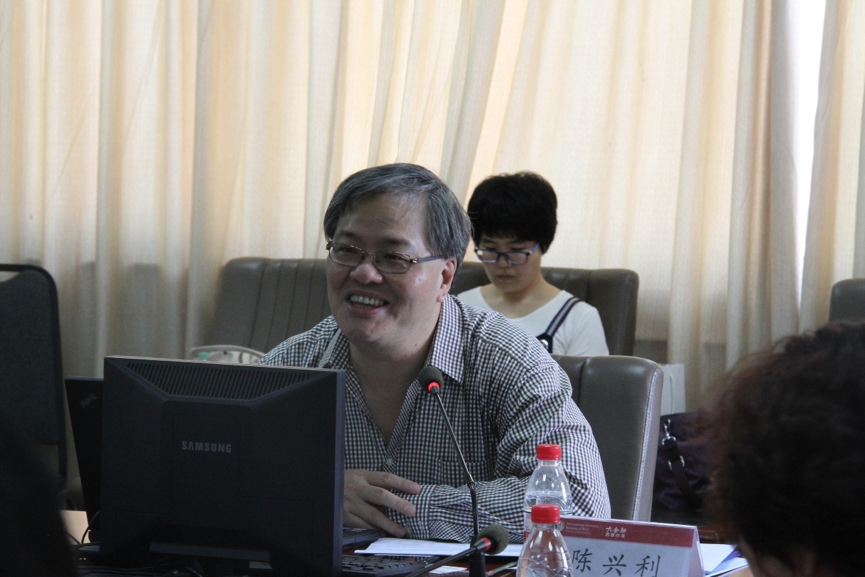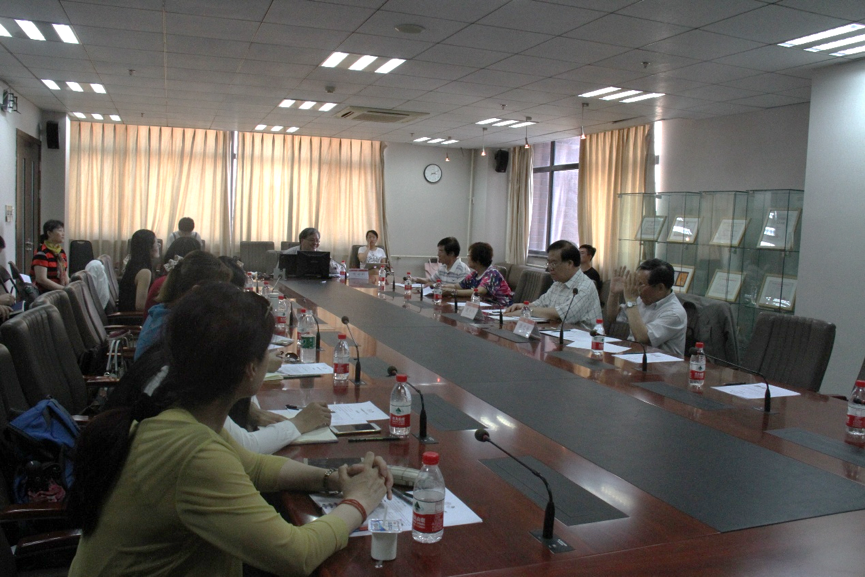Macro-Finance Salon (No. 67): Globalization and China-led New Order
2017-06-19 IMI First of all, Dr. Chan reviewed the definition and the first two rounds of globalization. He pointed out that globalization should be discussed from the flow of the following four factors: commodity trade, service, capital, and population. The first round of globalization happened between the Napoleonic War and the First World War, where the four factors flowed under the geopolitical background of colonial activities conducted by the British Commonwealth. The second round of globalization was mainly promoted by the American hegemony, where except population, commodity trade, service, and capital flowed. Generally speaking, the international political order, the scientific and technological development, and the political orientation of hegemonies are all promoters of globalization. Globalization is the result of the industrial revolution and improves the productivity. Compared to countries against globalization or partially promoting globalization, those in favor of globalization enjoy faster economic growth.
Afterwards, Dr. Chan analyzed the issues arising in globalization and the background of globalization led by China. He thought that economic globalization is a part of the geopolitical landscape. Globalization brings high growth rate and low inflation, but also causes the uneven distribution of interest among countries. Relatively poor and backward countries enjoy more benefits from globalization, therefore, they are in more favor of globalization than developed Western countries. Globalization also aggregates the wealth gaps within countries. In the future, policies like reducing tariff used in the second round of globalization will be harder to operate and have more limited effects. Besides, food security, labor standards, and environmental protection standards involved in the future globalization are sensitive internal affairs of sovereign countries and thus, launching a new round of globalization will be difficult. China should explicitly express its own position, propose its own solution, and let its own voice be heard. Although anti-globalization movements have taken place in some countries and globalization has temporarily gone back, the general trend of globalization will not be reversed. Nowadays, global economies are becoming more and more interconnected. The economic depression caused by anti-globalization proves that “non-globalization” is not a practical policy option at all. The only way out is to promote globalization once again at a deep level. The issue facing us is not anti-globalization but how to redefine globalization and recreate the globalization order. China is the biggest winner of the second round of globalization and has advantages in international trade and manufacturing. When the US economy is sluggish and the US is unwilling to become the banner-bearer of the next round of globalization, the international community naturally raises its expectation of China’s leading role.
First of all, Dr. Chan reviewed the definition and the first two rounds of globalization. He pointed out that globalization should be discussed from the flow of the following four factors: commodity trade, service, capital, and population. The first round of globalization happened between the Napoleonic War and the First World War, where the four factors flowed under the geopolitical background of colonial activities conducted by the British Commonwealth. The second round of globalization was mainly promoted by the American hegemony, where except population, commodity trade, service, and capital flowed. Generally speaking, the international political order, the scientific and technological development, and the political orientation of hegemonies are all promoters of globalization. Globalization is the result of the industrial revolution and improves the productivity. Compared to countries against globalization or partially promoting globalization, those in favor of globalization enjoy faster economic growth.
Afterwards, Dr. Chan analyzed the issues arising in globalization and the background of globalization led by China. He thought that economic globalization is a part of the geopolitical landscape. Globalization brings high growth rate and low inflation, but also causes the uneven distribution of interest among countries. Relatively poor and backward countries enjoy more benefits from globalization, therefore, they are in more favor of globalization than developed Western countries. Globalization also aggregates the wealth gaps within countries. In the future, policies like reducing tariff used in the second round of globalization will be harder to operate and have more limited effects. Besides, food security, labor standards, and environmental protection standards involved in the future globalization are sensitive internal affairs of sovereign countries and thus, launching a new round of globalization will be difficult. China should explicitly express its own position, propose its own solution, and let its own voice be heard. Although anti-globalization movements have taken place in some countries and globalization has temporarily gone back, the general trend of globalization will not be reversed. Nowadays, global economies are becoming more and more interconnected. The economic depression caused by anti-globalization proves that “non-globalization” is not a practical policy option at all. The only way out is to promote globalization once again at a deep level. The issue facing us is not anti-globalization but how to redefine globalization and recreate the globalization order. China is the biggest winner of the second round of globalization and has advantages in international trade and manufacturing. When the US economy is sluggish and the US is unwilling to become the banner-bearer of the next round of globalization, the international community naturally raises its expectation of China’s leading role.
 Furthermore, Dr. Chan analyzed the barriers to China’s leading role in globalization. In terms of talents, he pointed out that China lacks the structural support provided by the middle-level leaders in IMF and other international organizations; in terms of capital investment, since the national income per capita ranks low, China may face political pressure if it provides free public products in globalization; and Chinese enterprises lacks sufficient internationalization and technological innovation capability, which causes the lack of banner-bears in trade globalization. Besides, given China’s large economic scale, low foreign exchange outflow, low proportion of individual income tax in GPD, high saving rate, overcapacity, and enterprises’ great demand for foreign investment, once the capital account is open, a large amount of foreign exchange will flow outwards. More importantly, since the US interest rate is the benchmark of the return rate in China, the RMB must adjust to the US fiscal and monetary policy changes after the capital account is open. If the capital account is not open, the current account balance will lack the compensation mechanism, which will undoubtedly limit China’s leading role in globalization.
At last, he commented on the relationship between the Belt and Road Initiative and promoting globalization. He thought that the Belt and Road Initiative aims to promote free trade and infrastructure construction, which demonstrates the vision of common prosperity. The Belt and Road Initiative has a sound top-level design and effectively promotes interconnectivity and intercommunication between China and other countries along the route. But we should not take the Belt and Road Initiative as the vanguard of China’s globalization and internationalization.
Furthermore, Dr. Chan analyzed the barriers to China’s leading role in globalization. In terms of talents, he pointed out that China lacks the structural support provided by the middle-level leaders in IMF and other international organizations; in terms of capital investment, since the national income per capita ranks low, China may face political pressure if it provides free public products in globalization; and Chinese enterprises lacks sufficient internationalization and technological innovation capability, which causes the lack of banner-bears in trade globalization. Besides, given China’s large economic scale, low foreign exchange outflow, low proportion of individual income tax in GPD, high saving rate, overcapacity, and enterprises’ great demand for foreign investment, once the capital account is open, a large amount of foreign exchange will flow outwards. More importantly, since the US interest rate is the benchmark of the return rate in China, the RMB must adjust to the US fiscal and monetary policy changes after the capital account is open. If the capital account is not open, the current account balance will lack the compensation mechanism, which will undoubtedly limit China’s leading role in globalization.
At last, he commented on the relationship between the Belt and Road Initiative and promoting globalization. He thought that the Belt and Road Initiative aims to promote free trade and infrastructure construction, which demonstrates the vision of common prosperity. The Belt and Road Initiative has a sound top-level design and effectively promotes interconnectivity and intercommunication between China and other countries along the route. But we should not take the Belt and Road Initiative as the vanguard of China’s globalization and internationalization.

